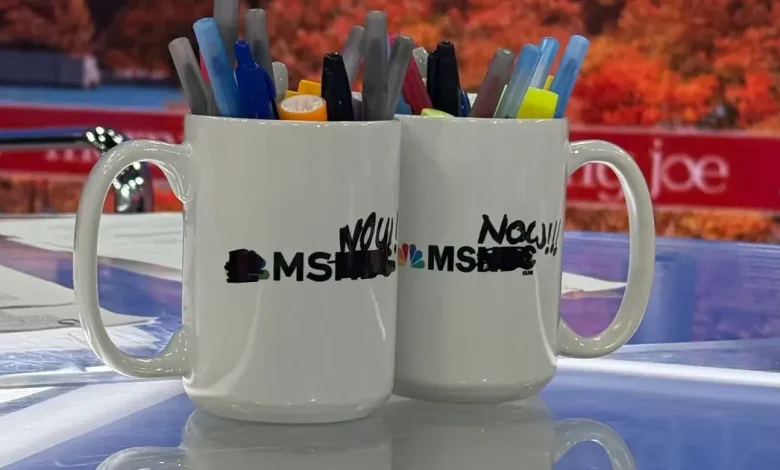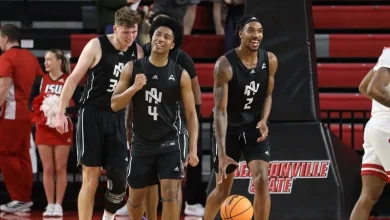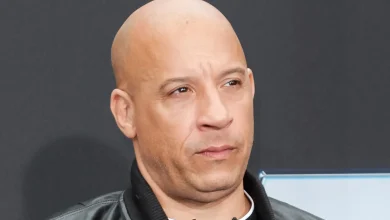Exclusive / The old MSNBC relaunches into a new media world

The move was a startling acknowledgement of a reality that has swallowed a television news business that once sat atop America’s media hierarchy.
Whether new CEO Mark Lazarus will admit it, MS NOW is Versant’s defining brand, one of the last remaining ratings draws in cable news at a moment when Americans are rapidly ditching their cable subscriptions for streaming.
But what was once the left-leaning, 24-hour counterpart to NBC News, is now very much on its own, divorced from the broadcast apparatus that had powered its journalism and kicked out of a building that it had shared with some of the biggest stars in network television.
The commercial question is whether Versant can use its linear distribution and strong balance sheet to give channels like MS NOW an edge over Morgan and other fully independent competitors — or whether those apparent advantages amount merely to baggage.
MS NOW executives and talent earnestly make the case that the spinoff will help immediately. MS profits have been invested in other parts of the business, like the money-losing streaming service Peacock, they said, instead of helping to invest in competing for digital eyeballs. MSNBC never invested heavily in digital, a decision that set the network back while other digital media businesses emerged.
The test for MS NOW will be whether Versant will follow through on its promise to reinvest the company’s cable news profits back into it; whether it decides to spend it acquiring other, more promising outlets; or whether simply puts the profits towards compensating the company’s shareholders while it gradually manages a declining business downward.
The spirit and talking points are now focused on growth. The company has pointed to a number of new editorial pushes it has put forward since the split was announced. Most notably, the company launched a newsroom, hiring dozens of largely politically-focused journalists. That move quickly yielded a number of high-profile scoops and exclusives, giving existing staff a boost of morale and signaling that the company will be a news heavyweight going into the midterm and presidential elections. It was also a financial decision that reflects a new independence from the old parent company: MSNBC network chief Rebecca Kutler believed it would be less costly to hire a team of journalists than license NBC News content.
“It’s always great to be able to launch something, especially in a time this industry is in right now. It’s a very different current as opposed to what the rest of the industry is going through,” Scott Matthews, MS NOW’s senior vice president of newsgathering, said in an interview. “We’re growing at a moment where everyone else is trying to figure out their business model.”
MS NOW has also leaned on its existing talent for new work. It launched a daily afternoon newsletter, The Tea, Spilled by Morning Joe. It launched a series of new podcasts, like one hosted by former White House communications director Nicolle Wallace and another hosted by former White House press secretary Jen Psaki, and relaunched some old content on YouTube, including a weekly series hosted by former on-air cohosts Ali Velshi and Stephanie Ruhle.
Madeleine Haeringer, head of digital and longform content, said the company planned on launching more original limited audio series as well as an explainer series, and would pursue more investment in YouTube shorts and “simulcasting coverage” on the video platform.
The company also wants to begin making money in other ways. Following the launch of the network’s flagship annual event in New York, the new senior vice president of content strategy, Marcus Mabry, said it plans on launching a series of live events across the country that would bring together MS fans. He also told Semafor audiences can expect some paid subscription offerings like newsletters.
“For us it’s really about community,” he said, noting that the network planned to “think about the needs of progressives in this time and space” and provide ways to meet those needs.
Many of the moves MS executives are willing to discuss on the record are being replicated across the media industry. Much of the true wheeling and dealing, if there’s any to be had, will happen after the company goes public in January. Day-to-day concerns at the network at the moment have focused largely on the rebrand and nailing the technical elements of the broadcast in a series of new studio spaces.
Still, there are some hints that MS has begun to explore smaller-scale moves over the last several months.
The company has discussed an expanded role for Pablo Torre, the investigative sports journalist, who regularly appears on the network to discuss the biggest stories in sports, particularly when they bleed over into politics, business, and culture.
The network has also discussed collaborations with Crooked Media, the digital media company behind Pod Save America — though much like its talks with ascendant never-Trump media company The Bulwark, the discussions have been more friendly and exploratory than serious, Semafor is told. Haeringer, who now runs MS NOW’s digital strategy, formerly was the general manager of content at Crooked.





